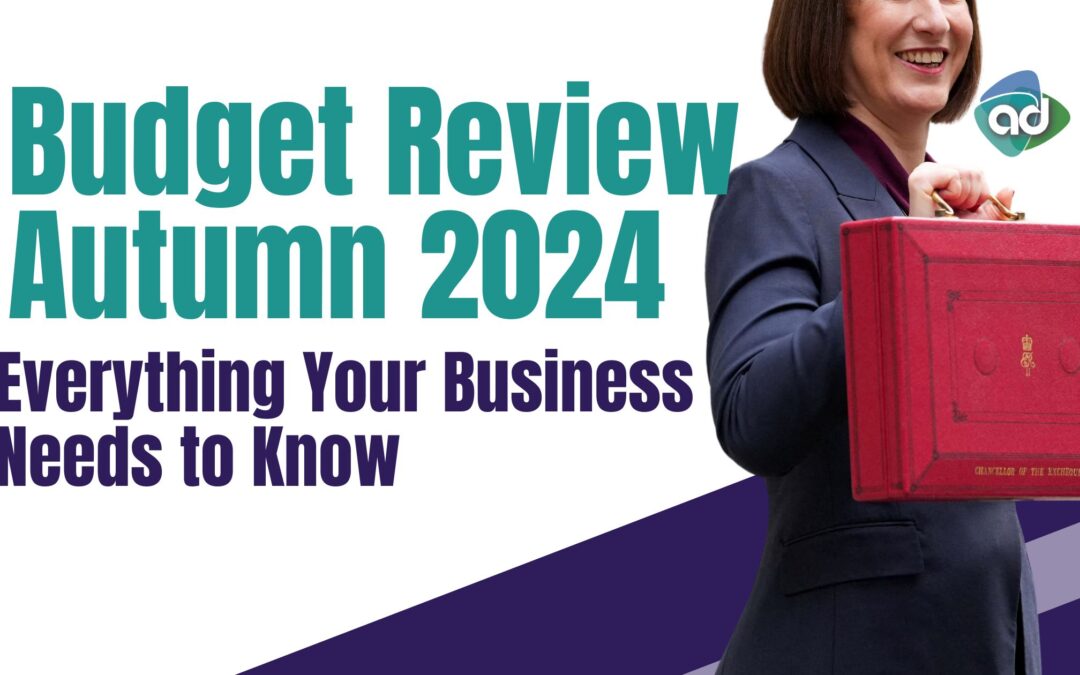The Autumn Budget has brought a lot of change for UK small businesses, especially in the areas of tax and employment costs.
From National Insurance increases to a boost in the minimum wage, small businesses are now looking at how these tax shifts will impact their budgets and future planning.
Here’s a focused look at what matters most to small businesses:
Key Tax Changes Affecting Small Businesses
1. National Insurance Increase for Employers
One of the most significant changes in this year’s budget is the increase in employer National Insurance (NI) contributions.
Starting April 2025, the employer NI rate will rise to 15% for earnings over £5,000 – a reduction from the current threshold of £9,100. This means that even lower-salaried employees will start to factor into NI contributions, increasing the cost burden on businesses.
While the government is positioning this as a way to strengthen public services, it will undoubtedly increase operating costs, especially for businesses with several employees or those in sectors where wages are a primary expense.
What you can do: It may be worthwhile to review your payroll setup and consider ways to optimise hiring and staffing needs. Planning ahead with an accountant can help manage this increased NI cost efficiently.
2. Minimum Wage Increase
The National Minimum Wage is set to increase, with the rate for those over 21 rising to £12.21 an hour from April.
This is a considerable hike and means higher wage expenses for businesses employing entry-level or hourly workers, especially in sectors like retail, hospitality, and food services.
For businesses already operating on tight margins, the wage increase adds to the pressure to boost revenue or cut costs elsewhere.
Although the increase in minimum wage is aimed at supporting low-paid workers, it will require businesses to reassess their budget allocations to keep up with the higher payroll demand.
Preparation tip: Assess how the new wage hike impacts your payroll and consider adjusting service pricing or improving productivity in response. Evaluating your hiring strategy and calculating payroll projections now will help prevent any surprises come April.
3. Business Rates Relief for Retail, Hospitality, and Leisure
Retail, hospitality, and leisure businesses will receive some relief with a new permanent lower business rate from 2026-27, but in the interim, they’ll benefit from a 40% business rate relief (up to £110,000 per property).
For many small businesses, this will ease some immediate tax pressure and provide a buffer to offset higher operational costs from the wage and NI increases.
This relief is designed to support businesses in sectors that have been heavily impacted by recent economic challenges, helping to reduce occupancy costs and encourage growth or investment in storefronts.
Next steps: Check if your business qualifies for this rate relief and, if so, plan for how it can be applied over the next two years to alleviate some of the financial impact of other budget changes.
4. Income Tax and Capital Gains Tax Changes
The budget didn’t include an immediate change in income tax rates, but the freeze on income tax thresholds will continue until 2028. This freeze, combined with inflation, means that as incomes rise, more individuals and small business owners will drift into higher tax brackets, effectively increasing their tax liabilities over time.
What to consider: For small business owners whose personal income may increase in the coming years, it’s wise to start planning for these gradual increases now, particularly if you’re nearing the upper end of a tax bracket.
5. Capital Gains Tax Increase
Capital Gains Tax (CGT) has also been increased from 20% to 24% on asset sales, impacting business owners looking to sell assets or shares.
If you’re planning an exit or thinking about selling business property, this change means less take-home from any sales proceeds.
Advice: This is another area where timing and planning can help. Consulting with your accountant to review the best strategy for asset sales can help you prepare for or mitigate the impact of this CGT increase.
How Accounts Direct Can Help
Managing these tax changes can be a challenge, especially when every penny counts.
Accounts Direct specialises in helping small businesses optimise for tax efficiency, so you’re ready to face new regulations without taking a hit to your bottom line.
If you’re concerned about how these budget changes will affect your business, our team is here to guide you. We offer expert advice on managing payroll, navigating NI and CGT increases, and making the most of available reliefs.
This Budget has made it clear: small business taxes are rising, but with the right planning, you can stay on top of these changes and keep moving forward.
If you’re ready to discuss your tax strategy for 2025, reach out to Accounts Direct today – we’re here to help.

